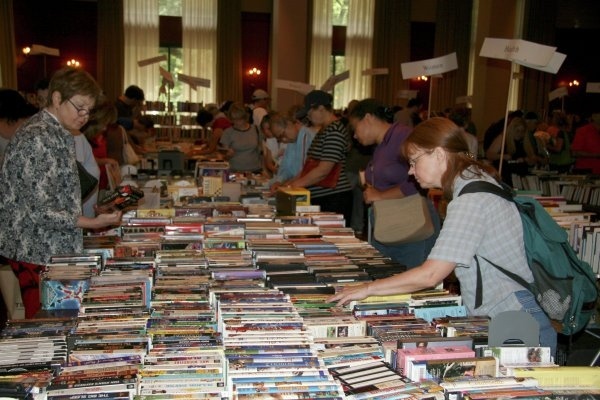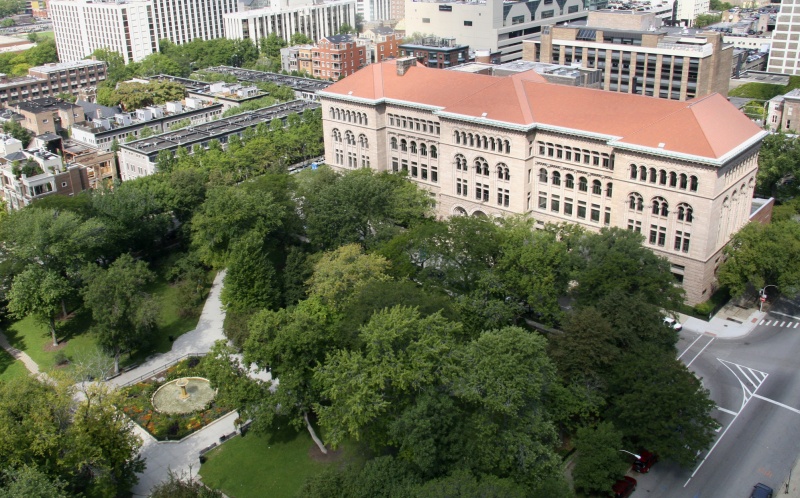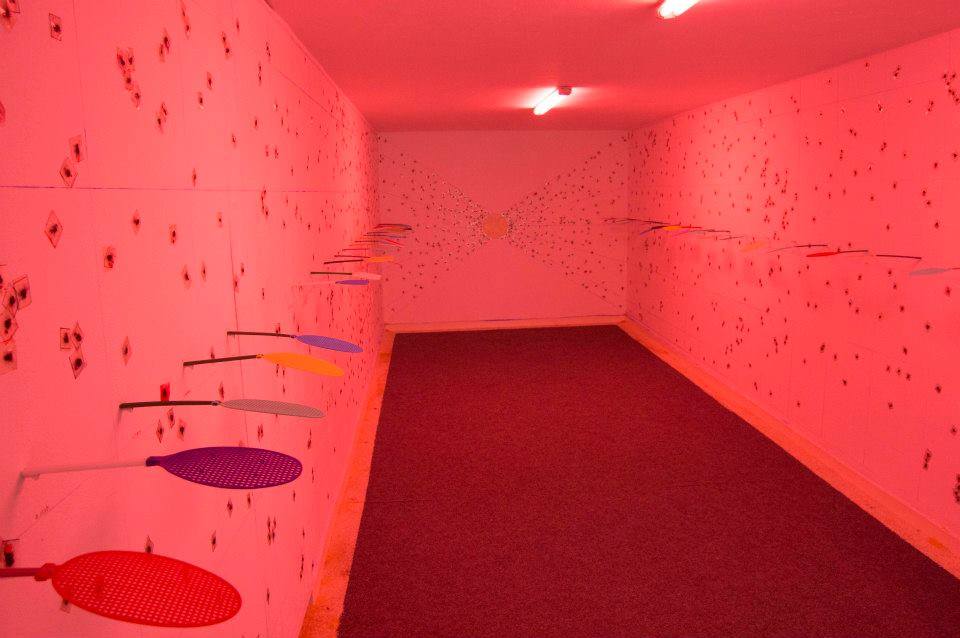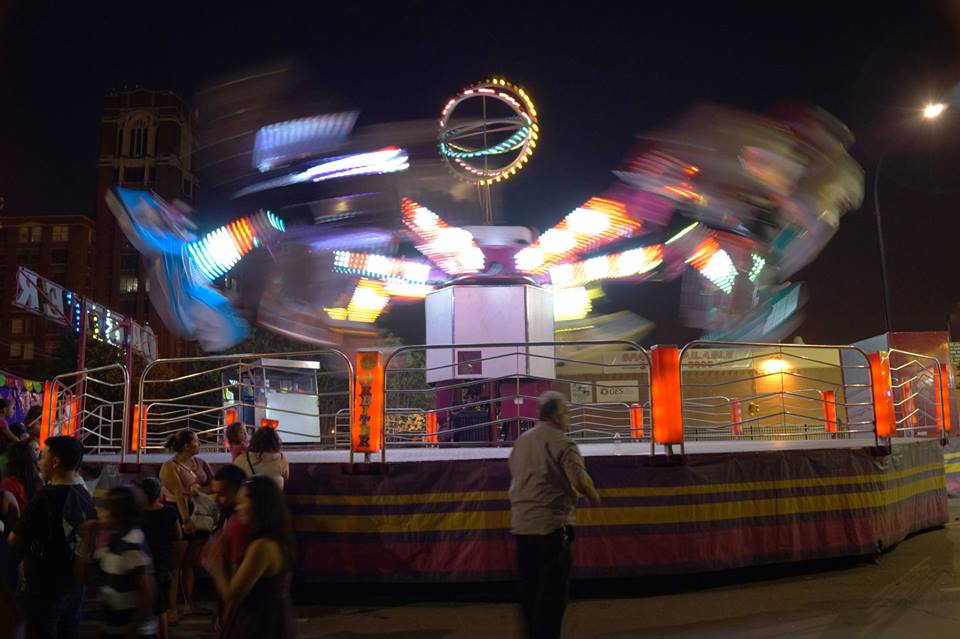
It was a book fair, but I could hear the bustle from around the corner as I approached the Newberry Library’s 30th annual used book fair, one of the largest in the country. Chicago’s Independent Research Library was surrounded by bikes lining its fences, food trucks parked in front, and a small crowd of people gathered around a stage for soapbox performances hosted by the Bughouse Square Debates. The hushed tone inside the library was a stark contrast. With a respectful quietness, book lovers wandered through six rooms of tables and shelves lined with thousands of used books.
A friendly volunteer explained the inner workings of the event, in which around 120,000 books are donated and divided into 70 different categories. The Library sees about 10,000 people come through to purchase used books from categories not limited to philosophy, science fiction, cooking, art, poetry, history, religion and literature, as well as a selection of records and VHS tapes. Collecting the items is a yearlong process, she remarked, and a large amount of the books the Newberry receives are donated from non-profit organizations as well as by individuals who, like those I watched leisurely browsing, love to read.
The library’s President, librarian David Spadafora, told me that the Newberry was founded in 1887. Open to the public, it provides resources for professional scholars and curious individuals who want to indulge in the library’s massive array. Since its founding, the library has expanded with contributions from collectors and donations from people who are unable to properly care for their historical documents, such as Civil War letters from family members. On top of donations to its archives, the library acquires materials using a buying budget of 750,000 dollars a year.

A variety of collections make up the entirety of the Newberry’s assets. Both The Book Arts and History of Book Making collection and the American Indian and Indigenous Studies collection are world-renowned. In addition to these, the library also has an impressive Medieval, Renaissance and Early Modern Studies collection and extensive genealogy archives. Thousands of prints, manuscripts, documents and maps comprise its enormous assemblage.
About forty percent of the people that come into the library are looking to research their genealogies, but the strength of the library’s resources also draws undergraduate, graduate and PhD students to use the facilities. The library accommodates their researchers with seminars, fellowships and consortia.
Among these broader collections are manuscripts relevant to Chicago’s history, including pre-Chicago Fire maps of the city and documentation of the lives of famous Chicagoans. Manuscripts by Nobel Prize winner Ernest Hemingway and Pulitzer Prize winner Mike Ryoko are open to the public, along with papers of the famous Chicago Symphony Orchestra conductor Theodore Thomas.
The library is non-circulating, but to start exploring one has only to apply for a reader’s card, free of charge, and the reading rooms are available, no appointment necessary. What makes the Newberry Library so unique is it allows visitors to touch and handle materials, making it a truly humanitarian center for research.
The Newberry Library’s dedication to preserving these documents has enabled them to provide a public service that encourage those who love to feed their curiosity to continue exploring. Its annual book fair is part of that encouragement. The rows of used books displayed for sale are as long as library’s own, and they also do their part to inspire Chicagoans to soak up the wealth of knowledge that is available to them.







